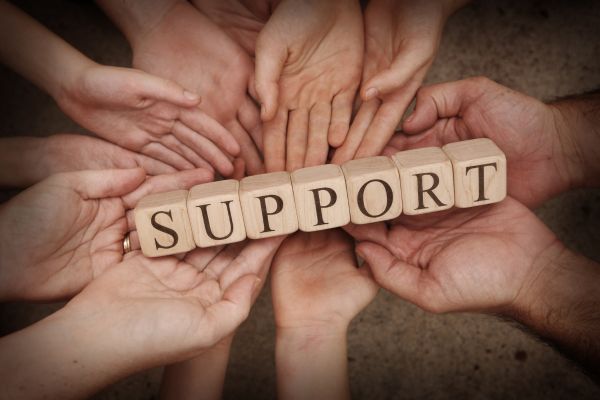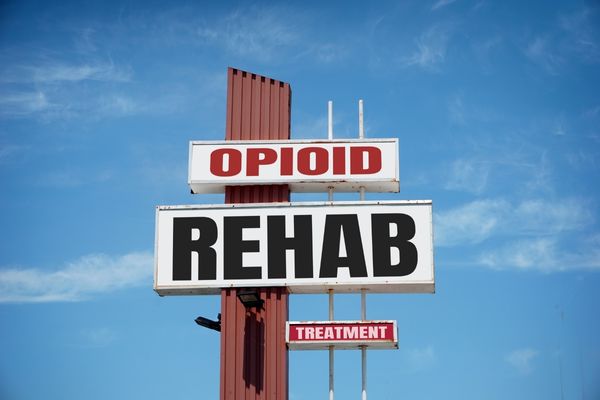Even though you’ve probably heard a lot about Alcoholics Anonymous meetings and how they work, the prospect of actually going to your first AA meeting can leave you with a lot of questions. The most common one amongst new attendees: Do you have to speak at meetings? Put your worries to rest with this guide to what to expect at AA.
Do you have to speak at AA meetings?
If you’re one of the 77% of Americans who fear public speaking, you have nothing to worry about. AA meetings do not require attendees to speak.
Despite how you may have seen AA or other peer-based support groups depicted on television, you’re not going to be forced to stand in the middle of a circle and introduce yourself (“Hi, I’m Bob, and I have a drinking problem”) nor will you have to share your life story. It’s entirely up to you to decide whether you speak up.
One way to guarantee you won’t be put on the spot at your first AA meeting is to get there early and talk to the committee chair committee who runs it. Let them know in advance that you’re nervous and don’t want to be called on in any capacity.
You also don’t have to worry that staying silent will make you appear standoffish or disengaged. It’s often recommended that first-timers and other AA newbies focus on listening in the first few meetings, rather than participating in the group discussion in one of the ways mentioned below:
Reasons for speaking at an AA meeting
- Sharing a personal experience: AA meetings are a safe space for individuals to share their struggles with alcoholism and their experiences in recovery. Many people choose to speak up and share their personal stories with the group to offer hope and support to others.
- Asking for help: If someone is struggling with their sobriety or having a difficult time in their personal life, they may choose to speak up and ask for guidance or support from the group. Other members can offer advice, share their own experiences, and provide encouragement.
- Offering feedback or encouragement: Occasionally, individuals may speak up to offer feedback on the meeting or the program as a whole. This can be a way to suggest improvements or offer praise for the positive impact that AA has had on them. Words of encouragement to others in the group can be especially helpful for those who are new to the program or feeling discouraged in their recovery journey.
- Celebrating milestones: Members of AA often celebrate milestones in their sobriety, such as 30 days, 90 days, or one year sober. Speaking up to share their accomplishment can be a way to inspire others and reinforce their commitment to their sobriety.
What to Expect at Your First AA Meeting
If you’re considering attending your first Alcoholics Anonymous (AA) meeting, it’s natural to feel a bit nervous but rest assured, the members of the group are happy you’re there and they want to help you on your journey to sobriety.
When you arrive at the meeting, you’ll likely be greeted by a few members of the group who will introduce themselves and welcome you. The meeting may begin with a reading from AA literature, followed by a group discussion of members sharing with the group. Depending on the topic of the meeting you may hear stories of triumphs and struggles, hope and hardship.
You may be invited to introduce yourself and share a bit about your experience with alcoholism, but this is entirely optional. You can just listen and observe if you prefer. You may also have the opportunity to speak one-on-one with other members after the meeting or to exchange contact information for future support.
How long are AA meetings?
Alcoholics Anonymous meetings usually last around one hour to one and a half hours. However, they can vary in length depending on the group and the format of the meeting. It really depends on the group and what works best for them.
AA meetings usually follow a structured format that includes opening and closing statements, readings from AA literature, and group discussions. Members are encouraged to share their experiences with sobriety, discuss their struggles and successes, and provide support and encouragement to one another.
Find an AA Meeting Near You
The ultimate goal of Alcoholics Anonymous meetings is to provide a safe and supportive environment for individuals who are struggling with alcoholism to come together and support each other in their journey to achieve and maintain sobriety. But sharing your personal experiences and speaking in front of the group? Entirely optional. Try out AA today and find a local AA meeting near you.









